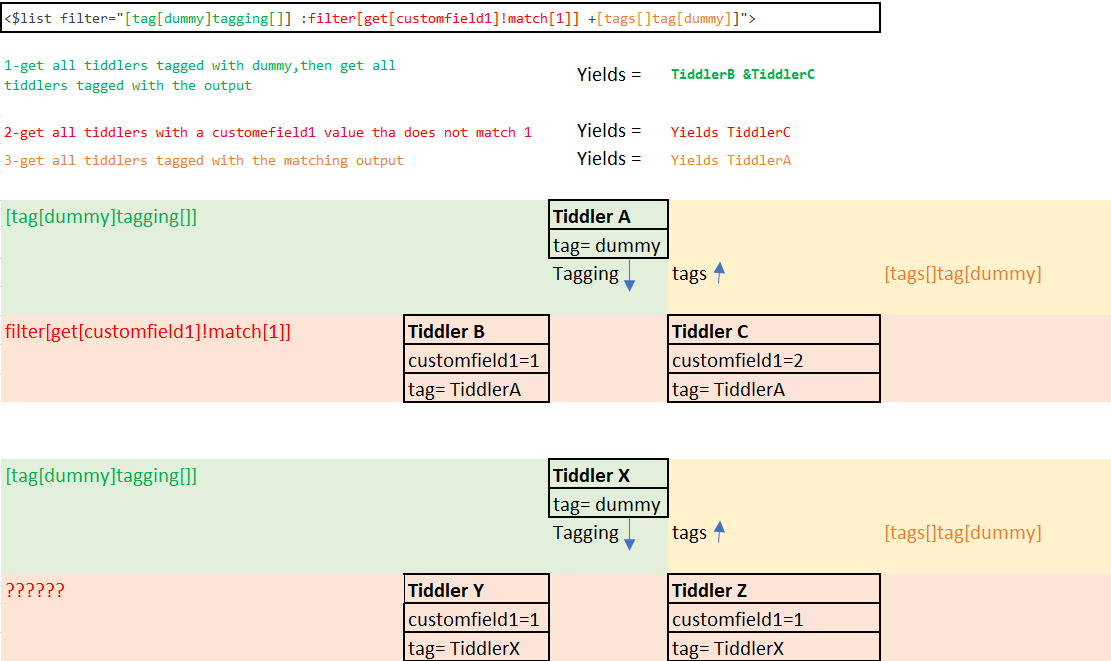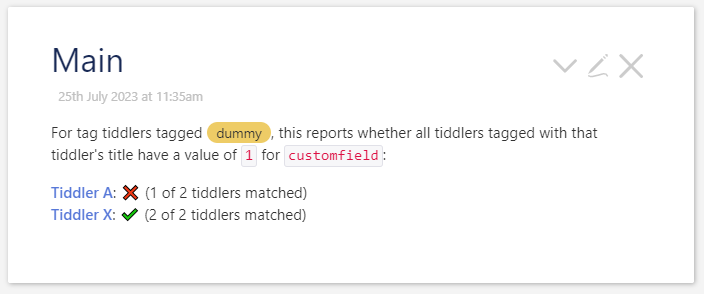Thank you chalrlie,
i works , but i dont think i asked the correct question …
ok this is actually a continuation to this post Change current tiddlers field value based on tagged tiddlers field value
so i have some tiddlers tagged with other tiddlers, i want to know if the tagged tiddlers underneath have a particular field value , then return back to the original TAG tiddler and take an action on it .
so with the below data i wanted to know if Tiddler A or Tiddler B has any tagged tiddlers undernath that dont have a value of one , then take an action on Tiddler A or Tiddler B ,
Tiddler A Tags :dummy customfield1 = 1
Tiddler B Tags :Tiddler A customfield1 = 1
Tiddler C Tags :Tiddler A customfield1 = 1
Tiddler X Tags :dummy customfield1 = 1
Tiddler Y Tags :Tiddler X customfield1 = 1
Tiddler Z Tags :Tiddler X customfield1 = 1
Eric schulman helped me with the below ,
<$list filter="[tag[dummy]tagging[]] :filter[get[customfield1]!match[1]] +[tags[]tag[dummy]]"> which works great
but now , i want to know if all tiddlers undernath have a Value of 1 , then go back to tiddler A or B and take an action on them if the tiddlers tagged with them meet the condition.
so erics filter evaluates a single tagged tiddlers field value against the condition , but would not evaluate all tagged tiddlers
sorry if my explanation sounds convoluted,i really hope this makes sense
 , that doesnt check if a particular entry in a filter matches the condition , instead checks if all entries in a filter matches the condition, then returns all these entries
, that doesnt check if a particular entry in a filter matches the condition , instead checks if all entries in a filter matches the condition, then returns all these entries
